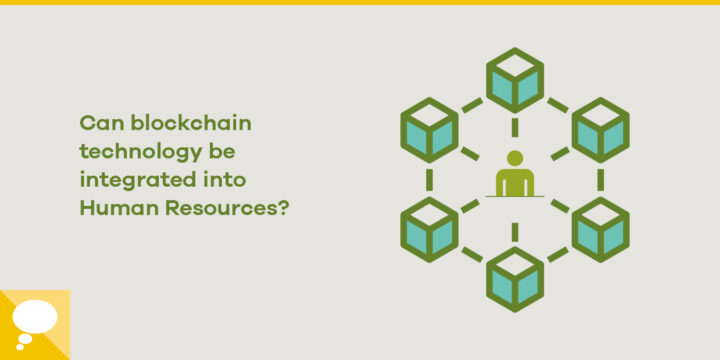

At its core, blockchain is a distributed database—a digital ledger that enables encrypted, verifiable transactions. Contrary to popular belief, the origins of blockchain technology—built on a series of information blocks stacked in an immutable chain—go far beyond Bitcoin.
Its foundations were laid in the 1990s, driven by the need to ensure that digital documents could not be altered or misdated. Originally developed to enable time-stamped and tamper-proof document storage, this technology has since become the backbone of an impending financial revolution.
In the literature, blockchain’s development is generally categorized as follows:
- Blockchain 1.0: Digital currency applications
- Blockchain 2.0: Smart contracts facilitating the transfer of assets like shares, bonds, loans, mortgages, and property titles, assets, going beyond simple money transfer applications
- Blockchain 3.0: Decentralized applications improving scalability, interoperability, and sustainability of blockchain technology
- Blockchain 4.0: Business-friendly blockchain integration across industries and use cases
But what does this imply for non-technical business professionals and end users?
Departments like Human Resources operate through the constant exchange of information among multiple parties. Operational efficiency depends heavily on the speed and accuracy of this data. Yet, due to a reliance on third-party verification, redundant tasks and inefficiencies persist.
We have known for quite a while that there had to be a better way. Even with major advances in digital infrastructure, the business world still struggles with data transfer, integration, and the complete elimination of physical documentation.
Blockchain technology provides a strong solution for processes involving multiple parties, where the complete integrity of exchanged information and transactions is crucial, and source traceability is vital. While it originated in the world of cryptocurrency, blockchain is rapidly expanding into broader business domains, transforming the way organizations operate and collaborate.
Which industries stand to benefit most from blockchain technology?
Most of us are already interacting with blockchain-enabled systems—often without realizing it. Areas that depend on reliable data transfers between multiple stakeholders with operational workloads include supply chain management, international trade, finance, healthcare and insurance systems, public transactions and civil rights, manufacturing, food safety, and digital art management.
As blockchain technology continues to transform a wide range of industries, it is also expected to redefine business management, streamline workflows, reshape organizational functions, and alter the way existing data systems operate. Research and publications exploring the impact of blockchain on specific business functions have already begun to emerge.
What could this mean for HR?
There are many perspectives on how blockchain may reshape Human Resources. As this transformation unfolds, it will redefine workflows, organizational structures, roles, and responsibilities—ultimately uncovering new areas of development that will require adaptation from all of us.
At the same time, it is not difficult to foresee that certain roles as we know them today may gradually become obsolete, particularly where operational redundancies exist. While it may be too early to discuss the broader implications in terms of structural change or long-term HR strategy, our immediate focus should be on identifying where blockchain can deliver the greatest value within current HR processes—and where future opportunities may lie. It is important to acknowledge that not all processes are suitable for blockchain integration. Those that are will likely involve significant costs, driven by high volumes of data and verification requirements.
Among HR functions, recruitment emerges as one of the most transformation-ready areas due to its heavy reliance on data exchange. Key sources of unique data in Human Resources include candidate databases and applicant tracking systems. Every day, vast volumes of candidate data flow from around the world to job search and recruitment platforms—and from there, to employers. With broad consensus on blockchain’s ability to ensure data accuracy, security, and transfer, platform-based data exchange can significantly enhance the efficiency and quality of recruitment processes—eliminating time lost to manual verification and sharing.
The first major initiative in this space came from PERSOL Group, one of Japan’s leading HR firms, which partnered with the Japanese IT and tech giant NEC Corporation in 2020 to launch the world’s first blockchain-based recruitment platform. The Adecco Group, Gi Group Spa, Kelly Services, Inc., ManpowerGroup, Randstad, and RGF Staffing B.V.—leading global recruiters under the World Employment Confederation (WEC)—have launched a blockchain initiative to enhance candidate selection and placement. These developments are expected to eliminate common challenges such as repetitive processes for each job application and doubts over the accuracy of candidate data in the near future. That being said, the path forward is not without obstacles. Establishing reliable data verification requires the creation of a blockchain-based consensus network— demanding collaboration and alignment among multiple stakeholders.
Recruitment is not the only area within Human Resources poised for blockchain integration. Personnel and payroll management also stand out as key candidates for transformation, given the volume of data transfers involved. Functions such as managing international expenses, handling tax obligations, overseeing workforce mobility, and coordinating multi-party processes—all of which rely on the continuous exchange of data across diverse sources and formats—are equally positioned to benefit from the same transformation.
If citizenship services, public institutions, global job platforms, and employers were to collaborate across interoperable blockchain networks, a wide range of data—such as health records, employment and financial history, performance metrics, education, career milestones, and personnel information—could be stored and shared in a tamper-free environment. In such a scenario, embracing transparency may soon become our new reality, with communication-based negotiations in recruitment gradually giving way to data-driven decision-making.
